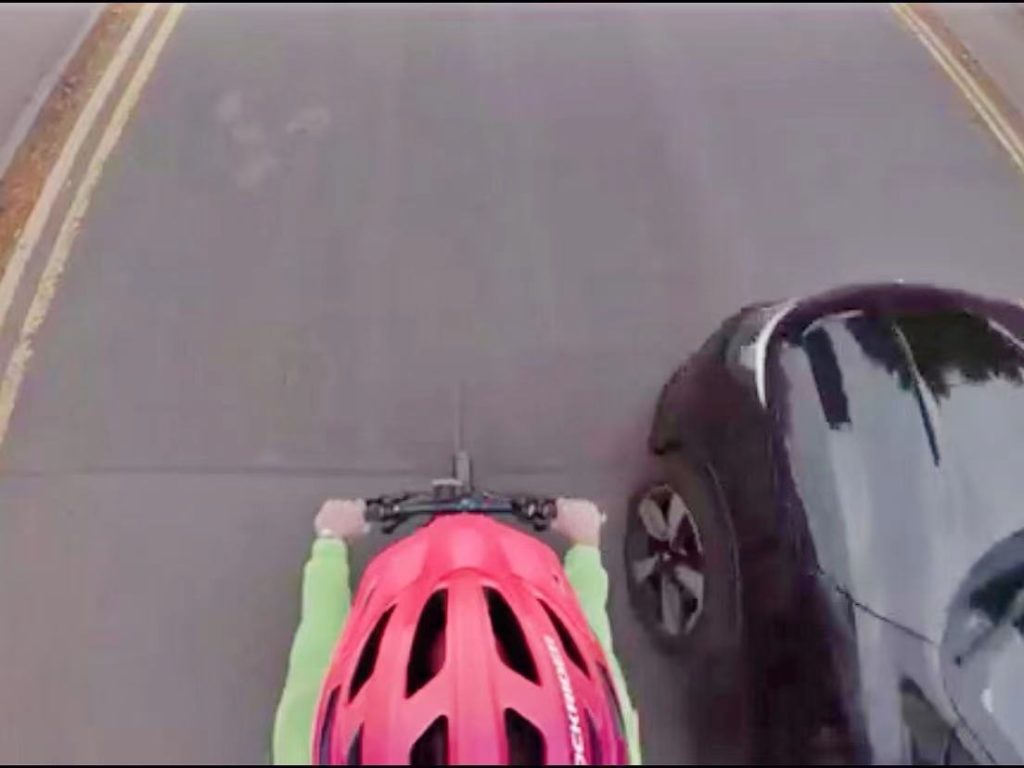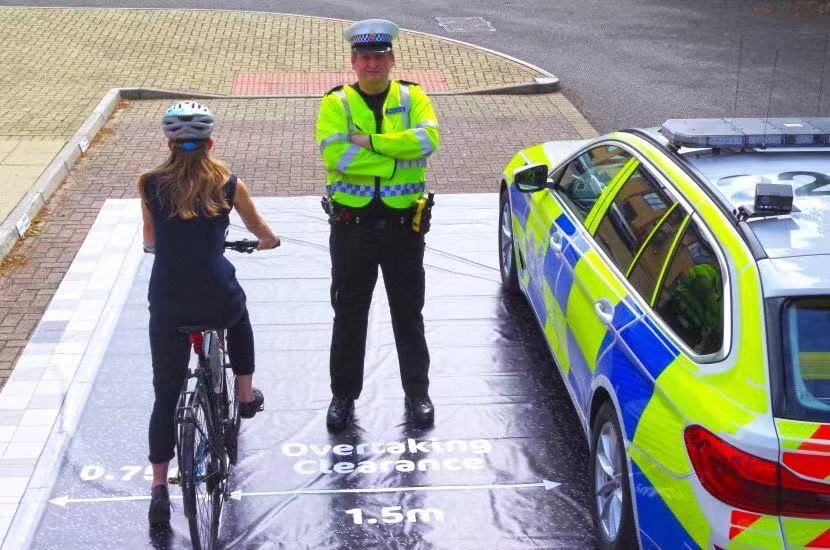A survey has shown that cyclists could lose their passion for cycling because of close passes. How can cyclists have a happy and safe cycling journey?

Over two million British people need to ride every day, but the facilities for cycling are relatively backward, so close pass has become the norm, according to the guardian.
There are only 2% of cyclists in the UK, so most drivers don’t know how it feels like to ride a bike on the road, according to Cycling UK.
“Drivers don’t always realise how close they are and how intimidating this can be for a cyclist,” said a spokesperson from Cycling UK.
According to the National Travel Attitudes Survey from UK government, passing too close to the cyclists is a contributing factor in 25% or serious collisions between cyclists and large vehicles.
Almost two-third of UK adults don’t want to cycle on the road because they think it is too dangerous for them, according to a survey of the public.
Cycling UK has launched a campaign named Too Close for Comfort that is inspired by the police operation in 2016 to educate cyclists to reduce the number of incidents.
“70% of journeys in Cardiff are done by car drivers, and so even if it become less in the future, we are still predominantly a car society. But a cyclist would like to increase the level of cycling, it is difficult to claim the space on the basis of practice in terms of on road cycling, we are kind of modulized in that stance, some people feel cyclists should be off the road or in the park for example, on cycle lanes. But even though more cycle lanes, and more cycling in Park, we do actually need to co-exist on the road,” said Ken Barker, cycling campaigner.
Ken Barker believes that infrastructure construction is important for safe cycling and it will take quite a while because of high cost of infrastructure.
He feels that the area that need the most improvement is the city centre, but the government hasn’t noticed this before the pandemic.
Chris Roberts, a Cardiff cyclist, has once suffered a dangerous close pass incident a couple of years ago while cycling on a painted cycle lane in James Street.
As he recalls, a woman driving a people carrier overtook his bike at a rather close distance when she indicated to turn right. The lady’s car was just a foot away in front of him.
When the lady tried to drive a right turn, she didn’t intend to slow down until the road was clear. Chris’s bike was almost parallel to the lady’s car.
“If I hadn’t stopped, she would have run into me,” said Chris.
The lady’s car eventually rushed into the bike lane.
According to Chris’s memories, it was around 11 am, and it was impossible for this lady to overlook him with the abundant sunlight, especially when he was on a clearly marked bike lane.
“The incident rattled me at the time but didn’t put me off cycling. However I’m a confident, experienced cyclist. If it had happened to somebody who had only just started riding a bike in the city, it could have put them off for life,” said Chris.
This incident is an example of cyclists being ignored or not seen in wild situations, when the drivers are distracted by the technology in their car or they don’t pay attention officially to the work conditions or the traffic conditions.

Through this campaign, plain clothes police officers will ride bikes on busy roads. If drivers overtake them at a close distance, the police will come forward and stop them to educate them on the importance of road safety.
Besides the spokesperson from Cycling UK believes that cyclists need more space and people’s attitude towards cycling needs to be changed.
“If we make cycling on the road safer, it’s not just cyclists that benefit, but everyone else too, but cyclists feel particularly strongly because they can feel extremely vulnerable when someone overtakes them at very close distance,” said the spokesperson from Cycling UK.
